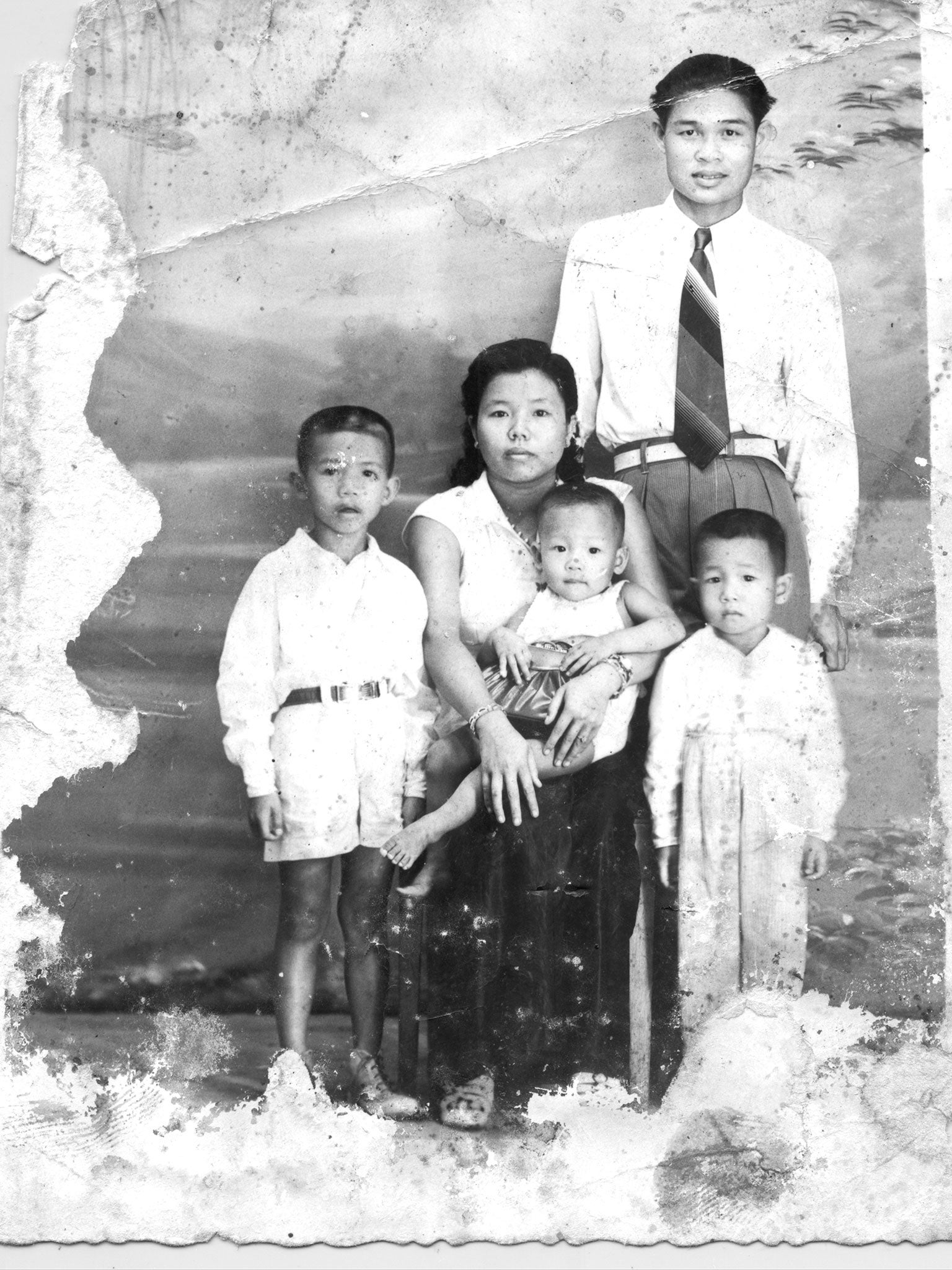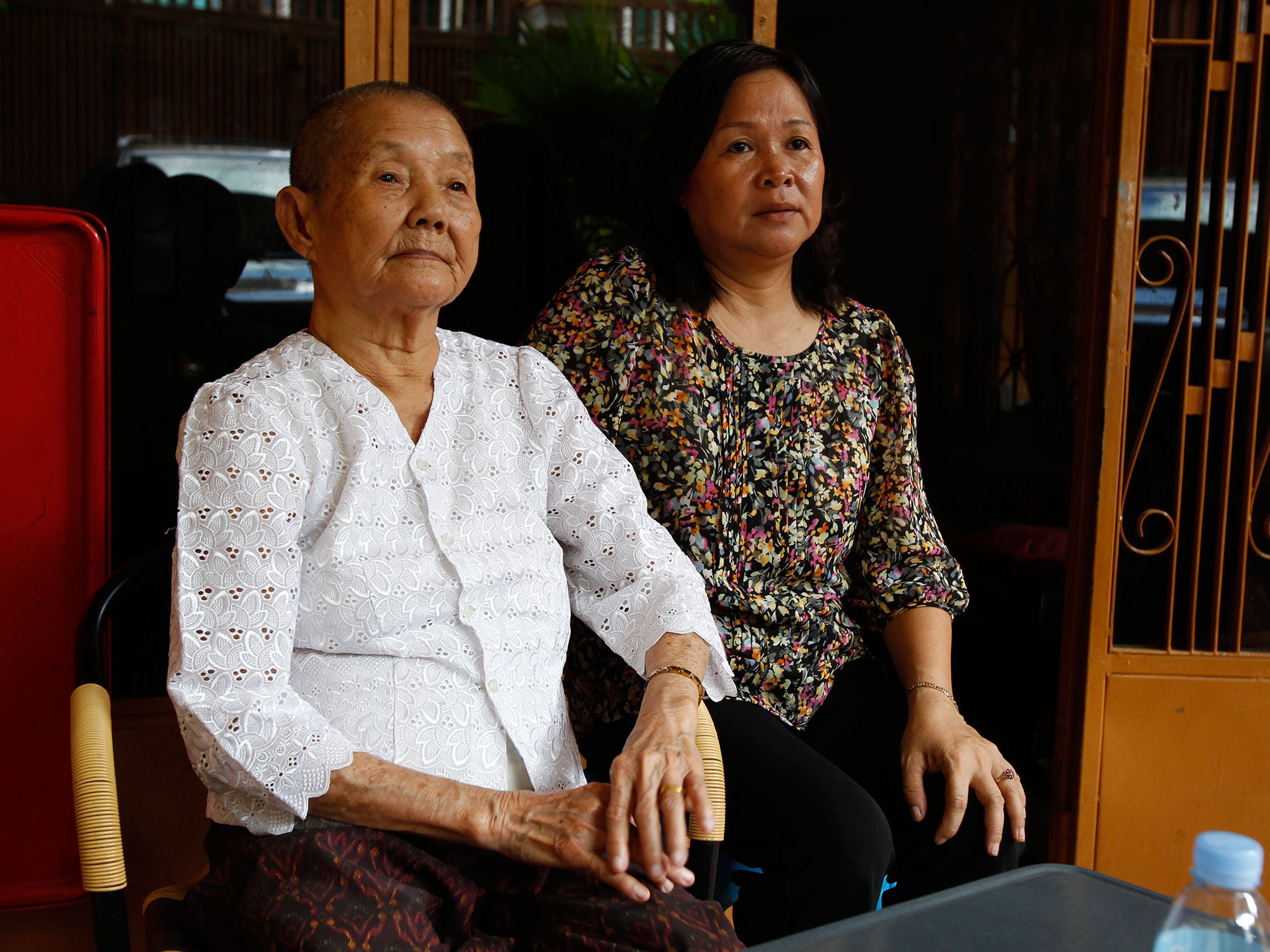Secret Cambodia diary helped to convict two Khmer Rouge ringleaders
‘Why do I have to die here like a dog, without meaning?’

Your support helps us to tell the story
From reproductive rights to climate change to Big Tech, The Independent is on the ground when the story is developing. Whether it's investigating the financials of Elon Musk's pro-Trump PAC or producing our latest documentary, 'The A Word', which shines a light on the American women fighting for reproductive rights, we know how important it is to parse out the facts from the messaging.
At such a critical moment in US history, we need reporters on the ground. Your donation allows us to keep sending journalists to speak to both sides of the story.
The Independent is trusted by Americans across the entire political spectrum. And unlike many other quality news outlets, we choose not to lock Americans out of our reporting and analysis with paywalls. We believe quality journalism should be available to everyone, paid for by those who can afford it.
Your support makes all the difference.Nearly 40 years ago, hunched on the floor of the wood-and-leaf hut he was forced to live in away from his children, Cambodian school inspector Poch Younly kept a secret diary recounting the horrors of life under the Khmer Rouge, the radical communist regime whose extreme experiment in social engineering took the lives of 1.7 million Cambodians from overwork, medical neglect, starvation and execution.
Acutely aware that he could be killed if discovered, Mr Younly hid the diary inside a clay vase. In those dark days, when religion and schools were banned and anyone deemed educated was a threat, he had no right to own so much as a pen and paper.
“Why is it that I have to die here like a cat or a dog... without any reason, without any meaning?” he wrote in the notebook’s last pages. Four decades later, that question still haunts Cambodia.
Mr Younly did not survive that era. But his diary did. It was part of the vast case file which this week helped convict the only two surviving Khmer Rouge leaders still facing justice – 83-year-old former president Khieu Samphan and 88-year-old Nuon Chea, right-hand man of the group’s infamous late leader, Pol Pot. Last week, a UN-backed tribunal sentenced both men to life in prison for crimes against humanity.
Made public for the first time last year, the diary is astonishingly rare – one of just four known first-hand accounts penned by victims and survivors, compared to 453 such documents written by communist cadres.
It is “the story of all of us who survived,” said Youk Chhang, who runs the Documentation Centre of Cambodia, which has amassed millions of documents, photographs, films and verbal testimonies from the Khmer Rouge era.
Mr Younly’s account is vital because the majority of Cambodians living today were born after the Khmer Rouge were ousted in 1979, and even those who survived can forget how bad it was.
“People forget how hungry we were,” said Youk Chhang, who still has dark scars on his legs from shackles. “It’s hard to describe to young people what starvation felt like.”

Written in Khmer, the diary fills about 100 pages and is divided into two sections. The first summarises Mr Younly’s family history and his arranged marriage to his then 15-year-old wife. The rest, written as a letter addressed to his children, describes life under the Khmer Rouge and is dated only at the start and the end – 9 February and 29 July, 1976 – with a final post-script entered a few days later.
When Khmer Rouge forces seized Phnom Penh on 17 April, 1975, the couple were living with eight of their children in a rural town called Kampong Chhnang. Three days later, the guerrillas arrived and residents cheered, relieved the war was finally over, his 86-year-old widow Som Seng Eath recalled.
But within hours, everything changed. Every soul was ordered to leave on foot. The Khmer Rouge were emptying cities, marching millions into the countryside to work as manual labourers. Mr Younly recounts marching for nearly two weeks. On 1 May, they reached the village of Chumteav Chreng.
“We worked day and night clearing wood to make arable land,” Mr Younly wrote. “We worked 10 to 13 hours a day.” Food supplies dwindled, and Mr Younly and his wife grew so desperate, they traded clothes and a family locket for salt, sugar and medicine.
The following month, Mr Younly fell ill. He could not work, but he had the privacy to write. Months later, he began sensing his end was near. “By now, my body resembles a corpse, thin with only skin and bones,” he wrote.
At one point, Mr Younly writes of his regret at not being able to see all of his children. “Let me die,” he continued. “Let my destiny take me wherever it goes... My children, I miss you; I love you.” He wrote until there were no pages left, his wife said. On 1 August, 1976, he wrote a postscript, asking his family to take care of the diary.
Hours later he was arrested by authorities because one of his sons had attempted to exchange an Omega watch Mr Younly had bought in America 15 years earlier for fermented fish. Private property was illegal; hiding it was worse.
“I never saw him again,” Som Seng Eath said, the tears streaming 38 years later. Mr Younly died several weeks later, in a nearby prison.
Som Seng Eath says the diary is too painful to read now. She says she didn’t understand its importance at the time. But she can never forget what he said about it. “He once looked up at me and said, ‘Protect this no matter what, even if I die’.” His widow passed the diary to one of her daughters. It was the daughter’s husband who suggested giving it to the documentation centre to protect the fragile, yellowed pages of history.
AP
Join our commenting forum
Join thought-provoking conversations, follow other Independent readers and see their replies
Comments